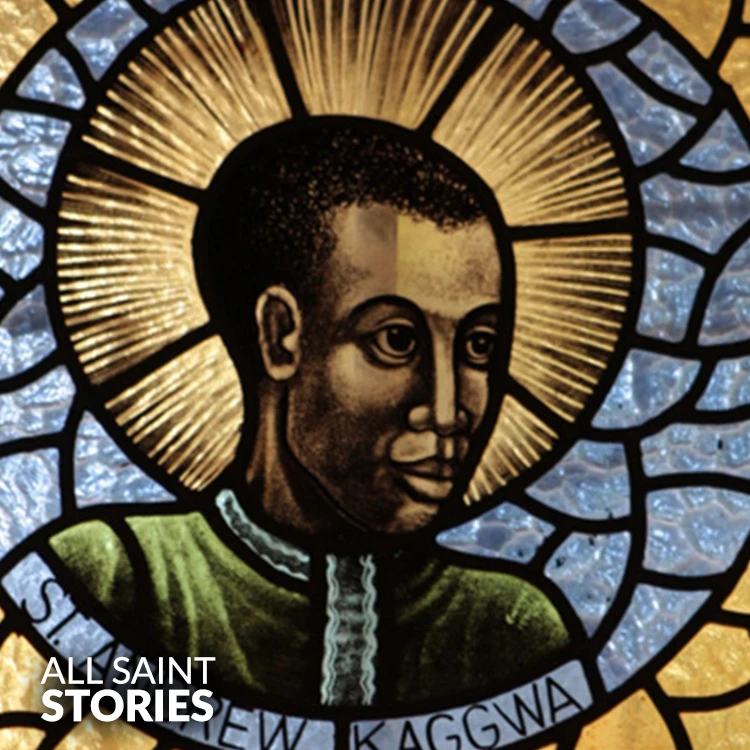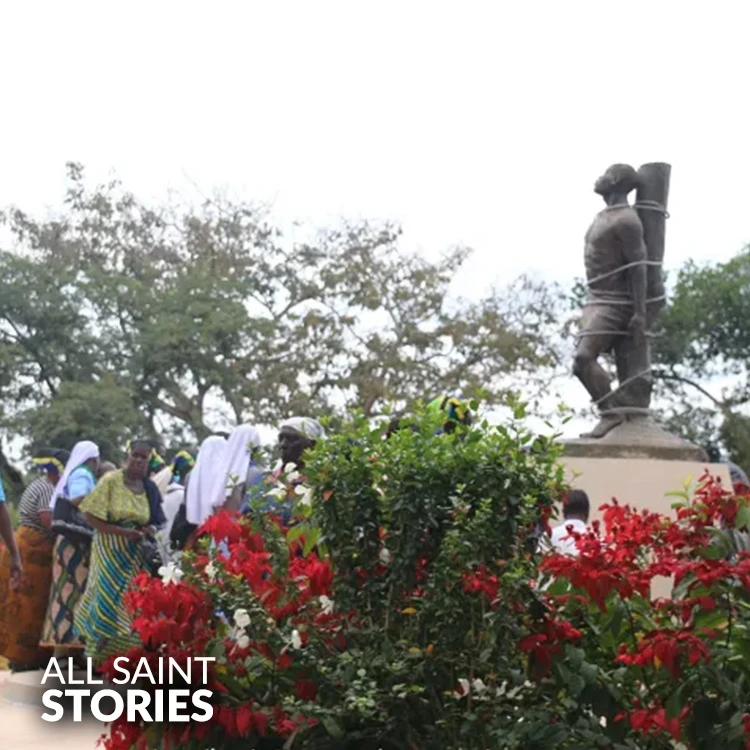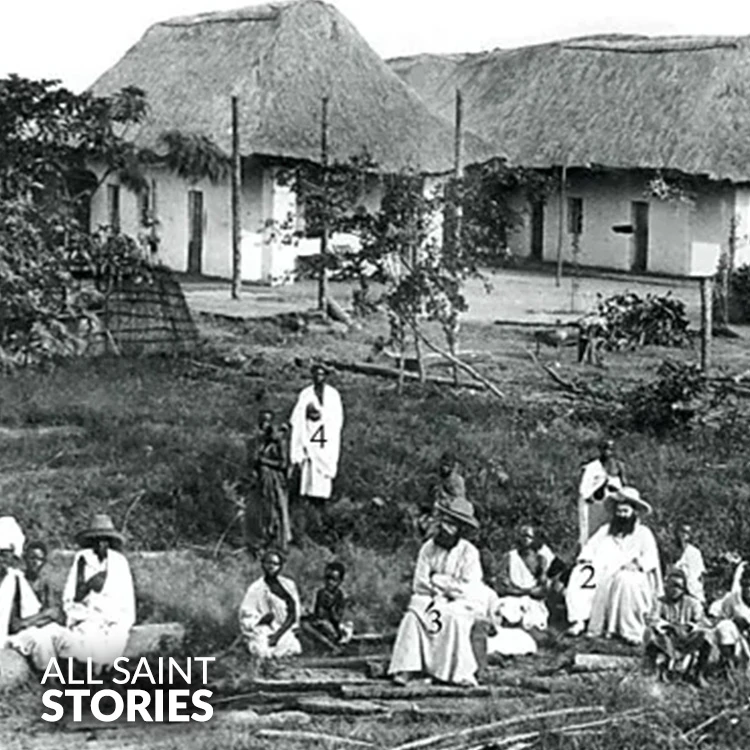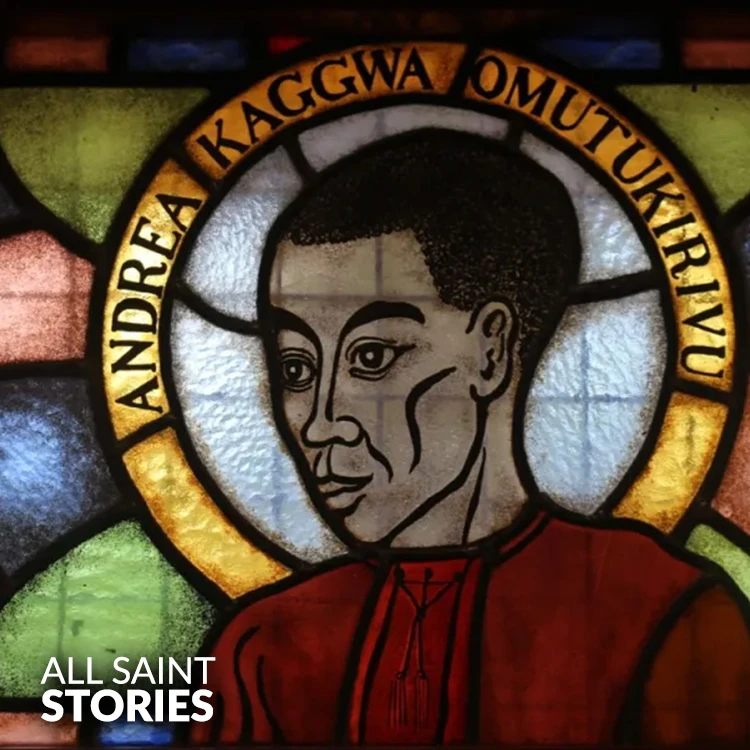Saint Andrew Kaggwa, faithful servant of Christ, You gave your life in the name of love and truth. Pray for us, that we may live with courage and devotion, Following your example of steadfast faith and unwavering hope. Guide us in our struggles, and intercede for us before the Lord. Through your prayers, may we grow in holiness and strength. Amen.
ST. ANDREW KAGGWA
ST. ANDREW KAGGWA

St. Andrew Kaggwa was one of the 22 Ugandan martyrs who were killed for their faith in the late 19th century. A royal official and a devout Catholic, he was executed on May 26, 1886, for refusing to renounce Christianity.
Saint Andrew Kaggwa was born around the year 1856 in the Kingdom of Buganda, located in modern-day Uganda. He served as a royal official at the court of King Mwanga II, holding the respected title of "Mugowa," or the king's bandmaster. A man of intelligence and leadership, Andrew was responsible for the court’s musical performances and ceremonial events.
His conversion to Christianity was sparked by the influence of Catholic missionaries from the Missionaries of Africa, also known as the White Fathers. After learning the faith and receiving instruction, Andrew Kaggwa was baptized into the Catholic Church. His zeal for the faith grew rapidly, and he became known for his commitment to catechizing others, particularly the youth at the royal court. He used his influence and status to spread Christianity, often teaching the catechism and preparing others for baptism.
Andrew's dedication did not go unnoticed by King Mwanga II, who had become increasingly hostile toward Christians. The king viewed Christianity as a threat to his authority, partly due to its call for chastity, monogamy, and loyalty to God over earthly rulers. Tensions at court rose as more members converted, and in 1885, persecution against Christians began to escalate dramatically.
On May 26, 1886, Andrew Kaggwa was arrested under the king’s orders. He was accused of spreading Christianity and refusing to abandon the Christian faith. Despite the threats against him, he remained steadfast. His right arm was cut off before he was beheaded, in a brutal act meant to terrorize other converts. He died a martyr at Munyonyo, and his blood joined that of his fellow Ugandan martyrs.
Andrew Kaggwa’s legacy is preserved as one of the 22 Ugandan Martyrs who were canonized by Pope Paul VI on October 18, 1964. Their martyrdom is commemorated every year on June 3rd, a day of pilgrimage and celebration at Namugongo, where the Uganda Martyrs Shrine now stands.
Andrew is particularly remembered for his leadership and teaching of the faith. His courage and firm witness, especially as a layperson and royal official, serve as an inspiration to those facing opposition for their beliefs. He is the patron saint of catechists and teachers in Uganda and is venerated not only in his home country but around the world.
Video Not Found
The information on this website is compiled from various trusted sources. While we aim for accuracy, some details may be incomplete or contain discrepancies.
If you notice any errors or have additional information about this saint, please use the form on the left to share your suggestions. Your input helps us improve and maintain reliable content for everyone.
All submissions are reviewed carefully, and your personal details will remain confidential. Thank you for contributing to the accuracy and value of this resource.
Credits & Acknowledgments
- Anudina Visudhar (Malayalam) – Life of Saints for Everyday
by Msgr. Thomas Moothedan, M.A., D.D. - Saint Companions for Each Day
by A. J. M. Mausolfe & J. K. Mausolfe - US Catholic (Faith in Real Life) – Informational articles
- Wikipedia – General reference content and images
- Anastpaul.com – Saint images and reflections
- Pravachaka Sabdam (Malayalam) – Saint-related content and insights
We sincerely thank these authors and platforms for their valuable contributions. If we have unintentionally missed any attribution, please notify us, and we will make the correction promptly.
If you have any suggestion about ST. ANDREW KAGGWA
Your suggestion will help improve the information about this saint. Your details will not be disclosed anywhere.
© 2026 Copyright @ www.allsaintstories.com






 English
English
 Italian
Italian
 French
French
 Spanish
Spanish
 Malayalam
Malayalam
 Russian
Russian
 Korean
Korean
 Sinhala
Sinhala
 Japanese
Japanese
 Arabic
Arabic
 Portuguese
Portuguese
 Bantu
Bantu
 Greek
Greek
 German
German
 Dutch
Dutch
 Filipino
Filipino